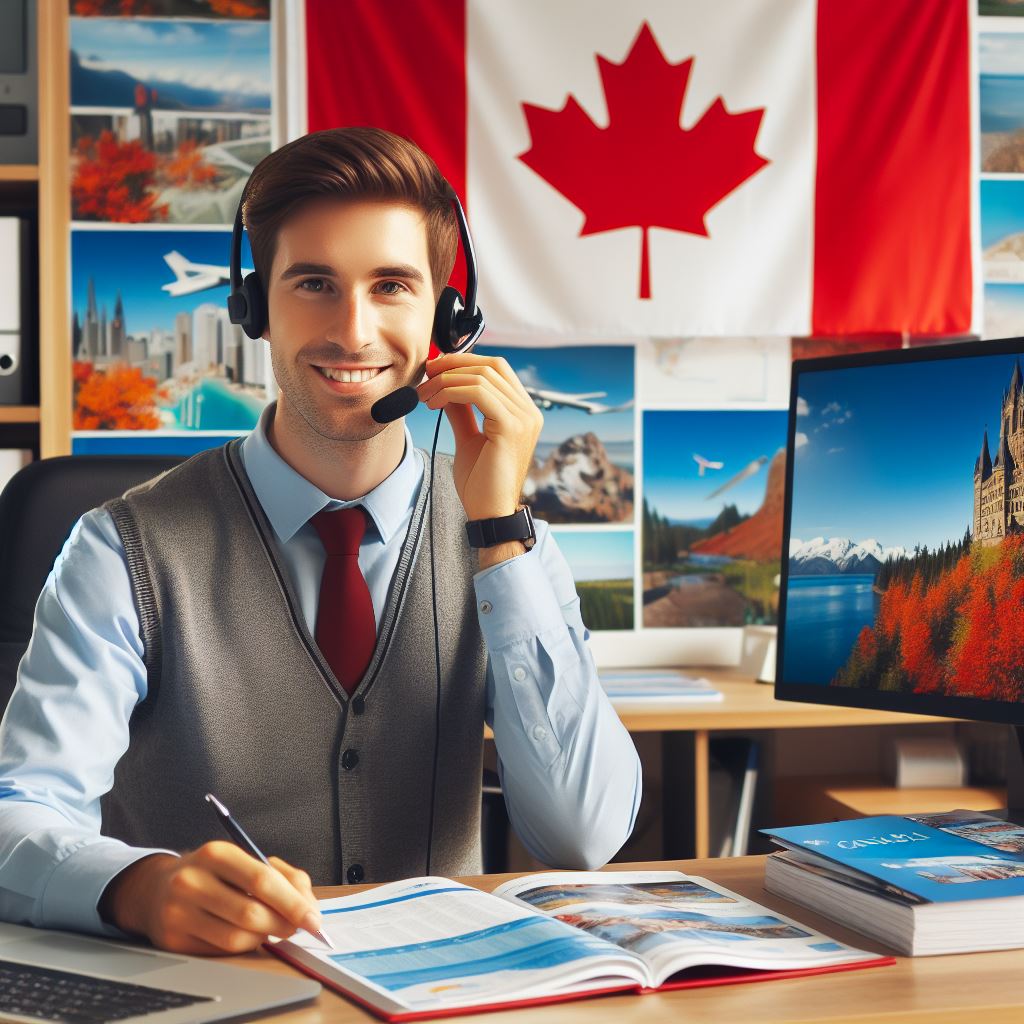Introduction
Navigating cultural sensitivity is imperative in event planning in Canada.
This blog explores the significance of understanding diverse cultural nuances to create inclusive and respectful experiences for all attendees.
Definition of cultural sensitivity and its importance in event planning in Canada
Cultural sensitivity is crucial in event planning in Canada to ensure inclusivity and respect.
It involves understanding and appreciating diverse cultural backgrounds, beliefs, and practices within the Canadian context.
By embracing cultural sensitivity, event planners can create meaningful and engaging experiences that cater to the needs and preferences of diverse attendees.
This not only enhances the overall event experience but also promotes inclusivity, fosters positive relationships, and avoids potential misunderstandings or conflicts.
Cultural sensitivity also helps event planners avoid cultural appropriation and stereotypes, thus upholding ethical standards.
In Canada, with its multicultural society, acknowledging cultural differences is essential to creating events that are inclusive and respectful.
Event planners must consider factors such as language, food preferences, religious customs, and attire choices when planning and executing events.
This requires open-mindedness, flexibility, and adaptability to ensure that all attendees feel valued and included.
By incorporating cultural sensitivity into event planning, organizers can provide meaningful experiences that celebrate diversity and promote cultural understanding.
Generally, cultural sensitivity is of utmost importance in event planning in Canada as it ensures inclusivity, respect, and a positive experience for all attendees.
Understanding Canadian Culture
Overview of Canadian multiculturalism and diversity
- Canada is known for its multicultural society, with people from various ethnic, religious, and cultural backgrounds.
- The country values diversity and promotes equal opportunities for all individuals, regardless of their backgrounds.
- Canadian multiculturalism is enshrined in the Canadian Charter of Rights and Freedoms, which prohibits discrimination based on race, ethnicity, religion, etc.
- The government encourages the preservation and celebration of diverse cultures through festivals, cultural centers, and educational programs.
- Canadian society thrives on the contributions and experiences of people from different cultures, creating a rich tapestry of traditions and perspectives.
Key cultural values and customs in Canada
- Politeness and respect for others are highly valued in Canadian culture.
- Canadians are known for their friendliness and willingness to help strangers.
- Individualism and independence are appreciated, but maintaining a sense of community is also important.
- Canadians place importance on punctuality and expect events and meetings to start on time.
- Equality, tolerance, and inclusivity are essential values that underpin Canadian society.
Importance of understanding and respecting different cultures in event planning
When planning events in Canada, cultural sensitivity is crucial to ensure inclusivity and avoid unintentional offense or exclusion.
Some reasons why understanding and respecting different cultures is important in event planning include:
- Creating an inclusive environment: By acknowledging and respecting diverse cultural backgrounds, event planners can create a welcoming atmosphere for all attendees.
- Effective communication: Understanding cultural nuances can help improve communication and avoid misunderstandings or misinterpretations during the event.
- Avoiding cultural appropriation: Being aware of and respecting cultural boundaries prevents the inappropriate use or imitation of cultural symbols or practices.
- Catering to dietary needs: Understanding different dietary restrictions and preferences allows event planners to provide appropriate food options for attendees.
- Providing suitable accommodations: Recognizing cultural practices and preferences helps in arranging appropriate facilities, such as prayer rooms or gender-segregated spaces.
- Promoting diversity and understanding: Hosting events that showcase various cultures not only educates attendees but also helps foster multicultural understanding and appreciation.
Cultural sensitivity in event planning involves conducting research on the cultural backgrounds of attendees, consulting with community leaders or cultural organizations, and incorporating inclusive practices.
By embracing diversity and respecting different cultures, events in Canada can become platforms for unity, discovery, and celebration.
Read: Eco-Friendly Event Planning Ideas in Canada
Impact of Cultural Sensitivity in Event Planning
Cultural sensitivity plays a crucial role in event planning in Canada as it has several positive impacts on various aspects.
Creating inclusive and welcoming events for participants from diverse backgrounds
- By being culturally sensitive, event planners can ensure that all participants feel included and valued.
- Understanding different cultural norms and practices helps in designing events that cater to diverse needs.
- Representation of multiple cultures and ethnicities promotes a sense of belonging and unity.
Enhancing attendee experience and satisfaction
- Considering cultural sensitivities allows event planners to tailor experiences that resonate with different groups.
- By incorporating diverse food options, music, and decorations, attendees can connect with the event on a deeper level.
- Providing translation services or multilingual materials ensures effective communication and engagement.
Increasing event attendance and engagement
- Cultural sensitivity attracts a wider audience by addressing their specific interests and preferences.
- Events that embrace diversity are more likely to receive positive word-of-mouth and recommendations.
- Promoting inclusivity fosters a stronger community and encourages active participation.
Avoiding cultural misunderstandings and potential conflicts
- Being culturally sensitive reduces the risk of unintentionally offending participants from different backgrounds.
- Awareness about cultural norms and values helps prevent misinterpretations or insensitive behavior.
- Addressing potential conflicts proactively allows for open dialogue and respectful resolution.
Overall, cultural sensitivity in event planning positively impacts both the organizers and attendees.
It fosters a more inclusive and diverse event environment where everyone can feel respected and valued.
By considering the needs and preferences of participants from different cultural backgrounds, event planners can create memorable experiences that leave a lasting impact.
Read: How to Start Your Event Planning Business in Canada
Tips for Culturally Sensitive Event Planning
When planning an event in Canada, it is important to be culturally sensitive to ensure inclusivity and create a meaningful experience for attendees.
Here are some tips for culturally sensitive event planning:
Conducting research on the target audience’s cultural backgrounds
Before planning an event, it is crucial to understand the cultural backgrounds of the target audience.
Unlock Your Career Potential
Visualize a clear path to success with our tailored Career Consulting service. Personalized insights in just 1-3 days.
Get StartedThis research will help you tailor the event to meet their needs and preferences.
Incorporating diverse food and beverage options
Food plays a significant role in various cultures.
Offer a diverse range of food and beverage options to cater to different dietary restrictions and cultural preferences.
Designing event materials and signage in multiple languages
To make everyone feel welcome, design event materials and signage in multiple languages commonly spoken by the attendees.
This will enhance communication and inclusivity.
Recognizing and celebrating cultural holidays and traditions
Acknowledge and celebrate cultural holidays and traditions of different communities represented at the event.
This shows respect and inclusivity towards attendees’ cultural backgrounds.
Ensuring accessibility and accommodation for attendees with different needs
Make sure your event is accessible and accommodating for attendees with disabilities or different accessibility requirements.
This includes providing ramps, accessible restrooms, and suitable seating options.
Cultural sensitivity in event planning is crucial to create an inclusive and enriching experience for all attendees.
By following these tips, you can ensure that your event is respectful of different cultural backgrounds and preferences.
Read: Event Planning 101: Certification in Canada Explained
Case Studies and Examples
In this chapter, we will explore success stories, lessons learned, and best practices in culturally sensitive event planning in Canada.
These case studies and examples serve as valuable resources for event planners seeking to enhance their cultural competence and create inclusive experiences for diverse communities.
Success Stories of Culturally Sensitive Event Planning in Canada
Celebration of Cultural Diversity Festival
This annual festival showcases various cultural performances, art, and cuisine from different communities in Canada.
It highlights the importance of cultural diversity and fosters mutual understanding among attendees.
Pride Parade
The Pride Parade in Toronto provides a safe and inclusive space for LGBTQ+ individuals to celebrate their identities.
Event organizers collaborate with community groups to ensure representation and address the unique cultural aspects of different LGBTQ+ communities.
Indigenous Cultural Showcase
This event promotes the rich Indigenous heritage and celebrates the contributions of Indigenous communities to Canadian culture.
Event planners work closely with local Indigenous elders and organizations to ensure authenticity and respect in showcasing their traditions.
Lessons Learned from Previous Events
- Conducting Cultural Research: Event planners must invest time in understanding the diverse cultures they aim to represent to avoid misrepresentation or cultural appropriation.
- Engaging Community Leaders: Collaboration with community leaders and organizations helps event planners gain valuable insights and ensures cultural sensitivity throughout the planning process.
- Communication is Key: Clear and effective communication with attendees is essential in providing information about event details, cultural practices, and the importance of respecting diverse perspectives.
Best Practices and Innovative Approaches
- Inclusive Programming: Incorporating a diverse range of performances, workshops, and activities that represent various cultures and identities can foster an inclusive environment.
- Multilingual Resources: Providing event information in multiple languages enhances accessibility and ensures that attendees from different cultural backgrounds can fully engage in the event.
- Sensory Considerations: Creating a sensory-friendly environment takes into account the diverse sensory needs of attendees, such as providing quiet spaces and reducing excessive noise or bright lights.
- Cultural Competence Training: Event planners can undergo cultural competence training to deepen their understanding of cultural nuances and develop skills to navigate diverse spaces effectively.
By analyzing these success stories, lessons learned, and best practices, event planners can gain valuable insights into effective approaches to culturally sensitive event planning in Canada.
Incorporating these strategies will not only create meaningful experiences but also demonstrate respect and inclusivity for all attendees.
Read: Corporate vs. Social Event Planning in Canada

Overcoming Challenges in Cultural Sensitivity
Addressing potential biases and stereotypes
When planning events in Canada, it is crucial to address potential biases and stereotypes that may arise.
- Conduct cultural sensitivity training to educate event planning teams about different cultures and customs.
- Encourage open-mindedness and respect for diversity to counteract biases and stereotypes.
- Consult with cultural experts or community leaders to gain insights into specific cultural practices.
- Promote inclusive language and avoid offensive terminology or stereotypes in event materials.
Dealing with language barriers and translation
Language barriers can pose significant challenges when dealing with cultural sensitivity in event planning.
- Utilize professional translators or interpreters to bridge language gaps during the event.
- Ensure translated materials are accurate and culturally appropriate to avoid misunderstandings.
- Consider incorporating multilingual staff members to assist non-English-speaking attendees.
- Offer translation services for event registration processes and communication channels.
Navigating cultural sensitivities and potential conflicts
Navigating cultural sensitivities and potential conflicts requires careful attention and proactive measures.
- Research and understand cultural customs, norms, and practices of the target audience.
- Provide clear guidelines and protocols to event planning teams to avoid cultural missteps.
- Facilitate open communication channels to address any cultural concerns or conflicts in a respectful manner.
- Adapt event formats or activities to accommodate cultural preferences or restrictions.
Training and educating event planning teams on cultural awareness
Training and educating event planning teams on cultural awareness is vital for successful cultural sensitivity.
- Organize workshops or seminars to enhance cultural competence within the planning teams.
- Invite guest speakers from diverse cultural backgrounds to share their experiences and insights.
- Encourage ongoing learning and continuous improvement in cultural sensitivity practices.
- Provide resources such as books, articles, or online courses to expand knowledge on different cultures.
By addressing potential biases and stereotypes, overcoming language barriers, navigating cultural sensitivities, and educating event planning teams, the challenges in cultural sensitivity can be effectively managed.
This allows for inclusive and culturally respectful events that celebrate diversity in Canada.
Conclusion
Recap of the importance of cultural sensitivity in event planning in Canada
In summary, cultural sensitivity plays a pivotal role in event planning in Canada.
It not only ensures inclusivity but also enhances the overall experience for participants.
Event planners must prioritize cultural sensitivity by being aware of different cultural norms, customs, and practices.
This awareness helps in avoiding unintentional offenses or exclusion.
Encouragement for ongoing learning and improvement in creating inclusive events
Continued learning and improvement are crucial for event planners to create inclusive events.
It involves staying updated with cultural trends, attending diversity and inclusion workshops, and seeking feedback from diverse communities.
By prioritizing cultural sensitivity, event planners can foster a sense of belonging and create a space where everyone feels respected and valued.
This results in stronger connections and increased attendance at events.
Final thoughts and call to action for event planners to prioritize cultural sensitivity
Ultimately, I urge all event planners to prioritize cultural sensitivity in their planning process.
By doing so, we can collectively create a more inclusive and harmonious event landscape in Canada.
Let us embrace diversity, celebrate differences, and make cultural sensitivity an essential aspect of every event we organize.




